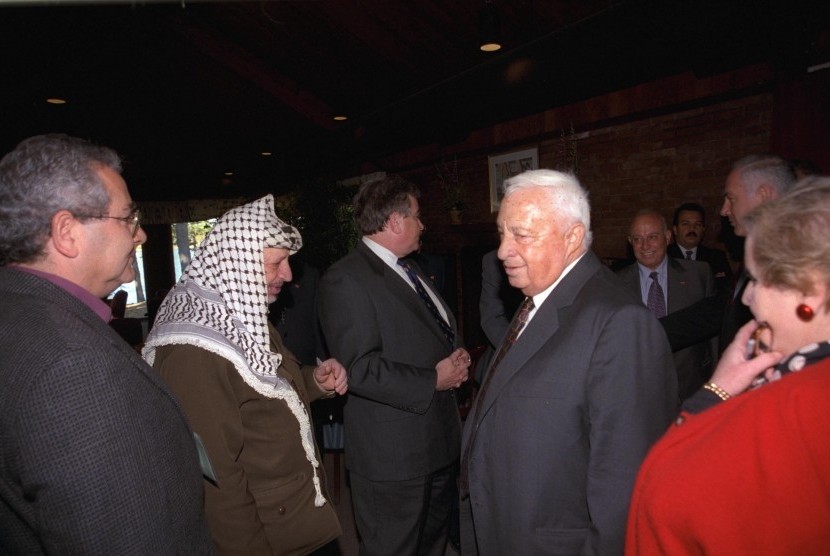REPUBLIKA.CO.ID, JERUSALEM - A maverick in war and politics, Israel's Ariel Sharon reshaped the Middle East in a career marked by adventurism and disgrace, dramatic reversals and stunning rebounds. Famously overweight, he suffered a stroke that put him into a coma in 2006, when he was at the height of his power, and died on Saturday without ever apparently regaining consciousness.
Loathed by many Arabs and a divisive figure within Israel, Sharon left his mark on the region as perhaps no other through military invasion, Jewish settlement building on captured land and a shock decision to pull out of Gaza.
A commander in the army from the birth of Israel in 1948, he went on to hold many of the top offices of state, surviving fierce debate over his role in refugee camp massacres in the 1982 Lebanon war to be elected prime minister in 2001.
As prime minister, Sharon presided over some of the most turbulent times in Israeli-Palestinian history, a Palestinian uprising that erupted in 2000 and an Israeli military crackdown after peace talks collapsed. As Israel's leader, he besieged his arch-nemesis Yasser Arafat with tanks after suicide bombers flooded Israel from the occupied West Bank.
Long a champion of Jewish settlement on land Israel seized in the 1967 Middle East war, Sharon, serving in 1998 as foreign minister, urged settlers in the West Bank to "run and grab as many hilltops as they can to enlarge settlements, because everything we take now will stay ours".
He said the contested decision to quit the Gaza Strip, which pulled apart his Likud party and persuaded him to form a new political force, would enable Israel to strengthen its hold over "territory which is essential to our existence".
It was a reference to the West Bank, where his government began the construction of a massive barrier during the Palestinian uprising. Israel called it a security measure - Palestinians condemned the project as a land grab.


